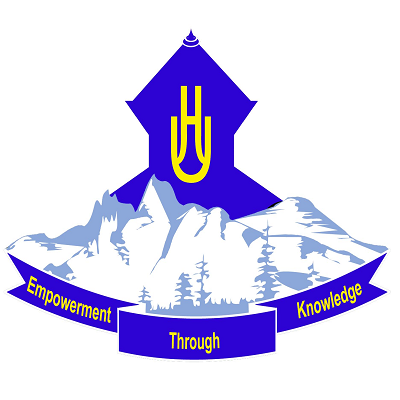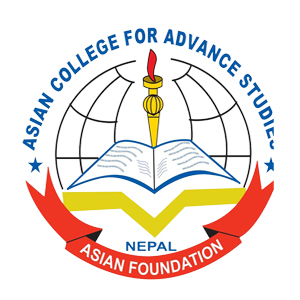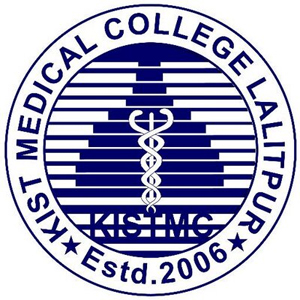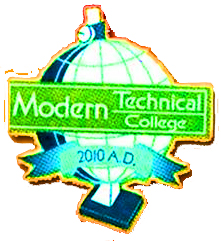Overview
Bachelor of Pharmacy (B.Pharm) at Janamaitri Foundation Institute of Health Sciences, Hattiban, Lalitpur
Bachelor of Pharmacy (B.Pharm) at Janamaitri Foundation Institute of Health Sciences (JFIHS), Hattiban, Lalitpur, is a four-year undergraduate pharmacy course affiliated with Tribhuvan University, Institute of Medicine (TU-IOM). The course falls under Nepal Pharmacy Council and Medical Education Commission (MEC) guidelines, so the degree is accepted within the national health system.
If you are interested in medicines, patient care, and the science behind drug action, this course gives you a structured pathway toward becoming a pharmacist. You study how medicines are discovered, produced, tested, supplied, and used safely in hospitals, community pharmacies, and pharmaceutical companies.
JFIHS functions as a health-science focused campus within the Little Angels’ academic network. The institute runs pharmacy, nursing, and medical laboratory technology programs, with laboratories, library resources, and clinical links that support health-science learning. For you as a future pharmacist, this means your daily environment is centred on health care and science from the first semester.
Highlights
-
Course: Bachelor of Pharmacy (B.Pharm)
-
Duration: Four academic years
-
Affiliation: Tribhuvan University, Institute of Medicine (TU-IOM)
-
Location: Hattiban, Lalitpur (Janamaitri Foundation Institute of Health Sciences)
-
Regulatory bodies: Medical Education Commission (MEC) and Nepal Pharmacy Council
-
Entry level: 10+2 Science or equivalent / Health Science Proficiency Certificate (Pharmacy) as per MEC rules
-
Focus: Pharmaceutical sciences, formulation, quality control, clinical and community pharmacy, regulatory concepts
Curriculum Details
The B.Pharm curriculum at JFIHS follows the TU-IOM structure for Bachelor of Pharmacy. Over four years, you move from basic sciences toward applied pharmaceutical practice.
You study:
-
Basic foundations: anatomy, physiology, biochemistry, microbiology
-
Pharmaceutical chemistry and medicinal chemistry
-
Pharmaceutics and dosage form technology
-
Pharmacology and toxicology
-
Pharmacognosy and natural products
-
Pharmaceutical analysis and quality control
-
Clinical pharmacy, hospital pharmacy, and community pharmacy
-
Biopharmaceutics, pharmacokinetics, and therapeutic drug monitoring
-
Pharmacy management, law, and ethics
-
Research methodology and project work
Theory classes connect directly with practicals in dedicated laboratories and field activities. By the later years, a significant part of your study time goes into industrial visits, hospital postings, and project-based work.
Objectives
Bachelor of Pharmacy at JFIHS aims to:
-
Prepare entry-level pharmacists who understand the full pathway of medicines, from raw material to patient use.
-
Build a strong base in pharmaceutical sciences so you can handle technical work in production, quality control, and distribution.
-
Develop skills for safe and rational use of medicines in hospital and community settings.
-
Introduce research thinking, documentation, and critical evaluation of scientific information.
-
Encourage ethical practice, professional behaviour, and clear communication with health professionals, regulators, and the public.
These objectives match the expectations of TU-IOM and Nepal Pharmacy Council for pharmacy graduates in Nepal.
Scope
The scope of B.Pharm in Nepal covers both clinical services and the pharmaceutical industry. After you complete B.Pharm and obtain Nepal Pharmacy Council registration, you may work in areas such as:
-
Hospital pharmacy and clinical pharmacy units
-
Community pharmacies and retail chains
-
Pharmaceutical manufacturing and quality control laboratories
-
Marketing and regulatory affairs departments of pharmaceutical companies
-
Research and development units
-
Public health and medicine supply programs
For students who wish to study further, B.Pharm provides the academic background needed for M.Pharm, clinical pharmacy, pharmaceutical care, industrial pharmacy, pharmacology, public health, or related master’s level study, inside or outside Nepal, depending on each university’s policy.
Learning Outcomes
By the end of the B.Pharm course at JFIHS, students are expected to:
-
Explain how medicines are discovered, formulated, analysed, and used in practice.
-
Prepare and evaluate common dosage forms in accordance with quality standards.
-
Interpret pharmacology and pharmacokinetic data while assessing medicine use.
-
Counsel patients and support prescribers on safe and rational medicine use.
-
Read and assess pharmaceutical literature and apply relevant findings to practice.
-
Maintain accurate records and follow legal and ethical requirements in pharmacy work.
-
Communicate clearly with patients, doctors, nurses, industry staff, and regulators.
These outcomes give you a clear idea of the skills you are expected to carry into real workplaces.
Skill Development Modules
JFIHS lists several laboratories and practice areas relevant to pharmacy students, such as pharmaceutical analysis laboratory, pharmacognosy laboratory, quality control laboratory, chemistry and pharmacology laboratories, and related health-science labs.
Inside these labs you gradually learn to:
-
Handle glassware, balances, and basic analytical instruments safely.
-
Carry out identification tests, titrations, and routine quality checks.
-
Prepare ointments, syrups, tablets, capsules, and other dosage forms on a small scale.
-
Observe and interpret effects of drugs on experimental systems in pharmacology practicals.
-
Examine crude drugs and herbal materials in pharmacognosy sessions.
-
Prepare documentation and basic reports that reflect pharmacy practice standards.
Industrial visits and field activities further expose you to large-scale manufacturing, packaging, and distribution, so classroom knowledge can be related to real production settings.
Teaching Methodology
Teaching in B.Pharm at JFIHS combines classroom teaching, laboratory practicals, and field-based learning.
You learn through:
-
Interactive lectures supported by slides, models, and real product examples.
-
Structured practical classes where you follow written procedures and then reflect on results.
-
Case discussions on medicine use, adverse drug reactions, and prescription review.
-
Group assignments and seminar presentations on selected topics.
-
Industrial visits and observational postings in hospital or community pharmacy settings.
-
Guided project work in the final stage, under the supervision of faculty members.
The pharmacy department at JFIHS is led by experienced pharmacists registered with the Nepal Pharmacy Council, many of whom hold master’s degrees and are engaged in teaching, research, or clinical work. This background helps students connect theory with current practice.
Admission Requirements
Admission to Bachelor of Pharmacy at JFIHS follows the Medical Education Commission (MEC) and TU-IOM rules in force for each academic year. In general, you need to meet all of the following points:
-
Academic qualification
-
10+2 Science or equivalent with Physics, Chemistry, and Biology, securing at least 50% aggregate or GPA/CGPA 2.4; or
-
Health Science Proficiency Certificate / Diploma in Pharmacy with at least 50% aggregate or GPA/CGPA 2.4 and registration in Nepal Pharmacy Council for the diploma route, as per MEC eligibility framework.
-
-
Entrance examination
-
You must sit for the MEC Bachelor Level Common Entrance Examination under the pharmacy category and reach the qualifying percentile set for that intake.
-
-
Merit and matching
-
Seats at JFIHS are filled through MEC’s online matching system based on your merit and college preferences.
-
-
Documents
-
SEE/Grade 10 and 10+2 (or equivalent) certificates and transcripts
-
Migration and character certificates where required
-
Citizenship or passport
-
Other documents specified in MEC and JFIHS notices
-
Fee levels follow the fee ceiling for B.Pharm fixed by MEC for TU-affiliated colleges; students should always check the latest official notice for exact figures.
Career Opportunities
After B.Pharm and Nepal Pharmacy Council registration, you can enter different parts of the medicine-use system. Many graduates start their careers as:
-
Pharmacists in hospital pharmacy units
-
Community pharmacists in urban or semi-urban settings
-
Junior officers in pharmaceutical production or quality control units
-
Medical service officers or product executives in pharma companies
-
Pharmacy officers in government or public health medicine-supply programs
With experience and further study, some graduates move into research, academic posts, regulatory positions, or specialised clinical pharmacy work in tertiary hospitals. Your own path depends on your interest in industry, clinical services, public health, or research.
Scholarships and Financial Aid
B.Pharm falls under MEC’s national seat distribution system, which includes scholarship and paying-category seats. Scholarship seats are awarded strictly from the national merit list under the rules published by MEC for that exam cycle.
Within the campus, JFIHS mentions academic awards and support schemes for deserving students across its health-science programs. Pharmacy students who perform well or face financial difficulty can enquire with the administration about any internal support for which they may qualify.
Because scholarship policies and amounts may change over time, you should rely on current MEC guidelines and JFIHS official notices during your application year.
Why Choose Bachelor of Pharmacy at Janamaitri Foundation Institute of Health Sciences?
If you want a pharmacy course that sits inside a health-science campus and follows TU-IOM and national council standards, B.Pharm at JFIHS offers a focused environment.
You study in a setting where pharmacy, nursing, and laboratory science run together, so you regularly meet students from related disciplines and learn to work in a team. You also gain access to subject-specific pharmacy laboratories, a health-science library, and linked hospitals and industry sites that match the needs of pharmacy training.
The presence of senior pharmacy faculty with long teaching and research experience, plus younger staff with industrial exposure, creates a mix of perspectives. For a student, this combination helps connect classroom theory with both patient-level and product-level realities.
Conclusion
Bachelor of Pharmacy at Janamaitri Foundation Institute of Health Sciences, Hattiban, Lalitpur, is a four-year TU-IOM affiliated course that prepares you for professional work in pharmacy within Nepal’s health system. The curriculum covers core pharmaceutical sciences, clinical and community pharmacy, and quality-related subjects, supported by laboratories, field visits, and project work.
If you come from a science background and want a career around medicines, patient safety, and pharmaceutical production or regulation, this course offers a clear, structured route under recognised national bodies. Careful study of the eligibility rules, MEC entrance schedule, and JFIHS notices will help you plan your next steps confidently.
FAQ
1. What is the duration of the B.Pharm course at JFIHS?
B.Pharm at JFIHS is a four-year undergraduate pharmacy course under Tribhuvan University, Institute of Medicine.
2. Do I need to pass a national entrance exam to join B.Pharm here?
Yes. You must appear in the Medical Education Commission Bachelor Level Common Entrance Examination for pharmacy and secure the required percentile before you become eligible for seat matching at JFIHS.
3. What minimum marks do I need in 10+2 Science?
You need at least 50% aggregate or GPA/CGPA 2.4 in Physics, Chemistry, and Biology (or an equivalent standard in A-Level or similar boards) as per current MEC rules.
4. Can diploma holders in Pharmacy apply for B.Pharm at JFIHS?
Yes. Health Science Proficiency Certificate / Diploma in Pharmacy holders with at least 50% or GPA/CGPA 2.4 and valid Nepal Pharmacy Council registration fall under the diploma route mentioned in MEC eligibility criteria, subject to current regulations.
5. Is Nepal Pharmacy Council registration required after graduation?
Yes. After completing B.Pharm, you must pass the pharmacist licensure examination and obtain registration from Nepal Pharmacy Council to work legally as a pharmacist in Nepal.
6. Where can I find current information on seats and fees?
Seat numbers and maximum fees for B.Pharm are set by the Medical Education Commission for each intake. You should check recent MEC notices and the official JFIHS website or administration office for the most updated figures and any campus-level scholarship information.





















